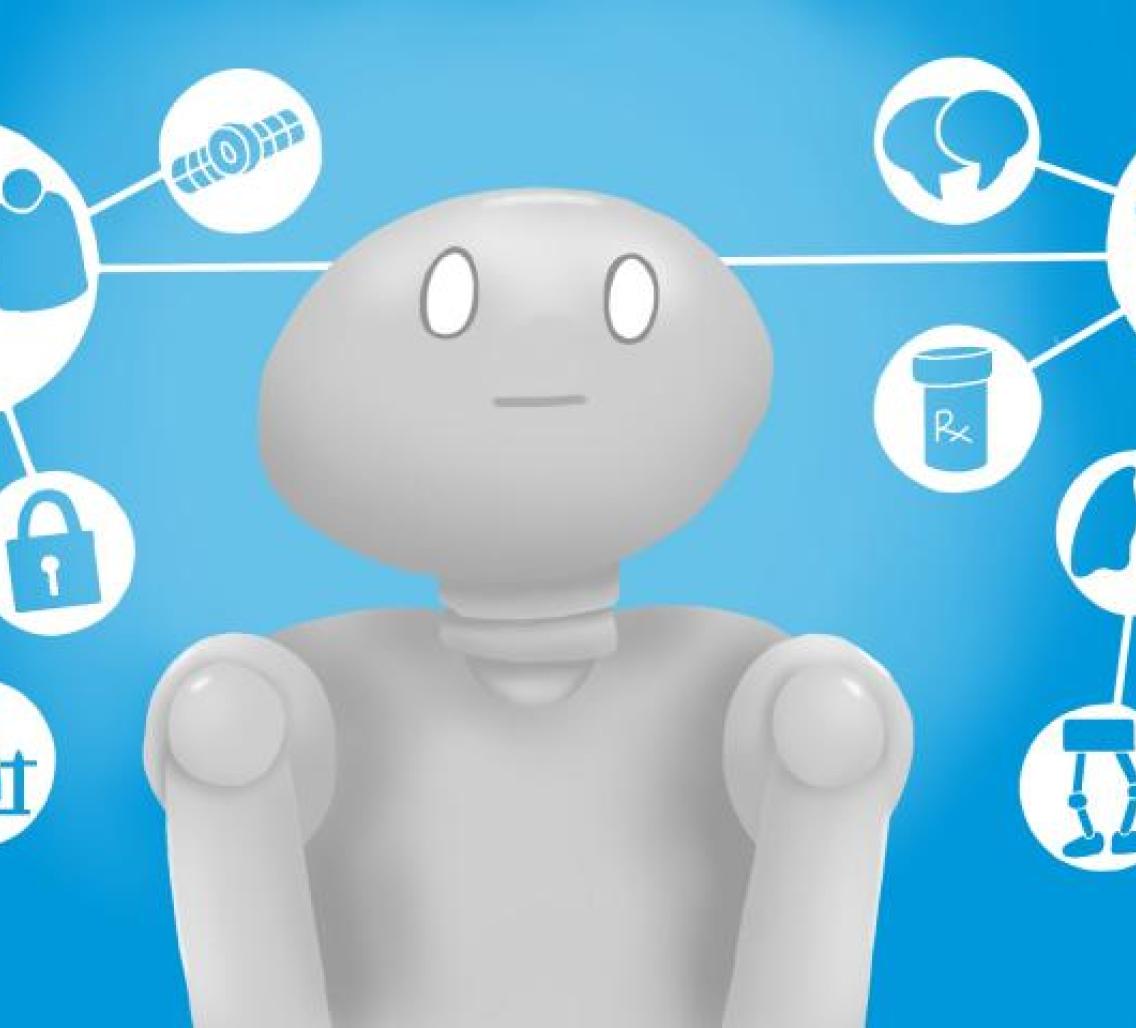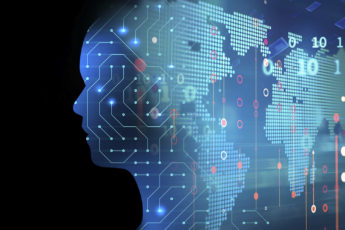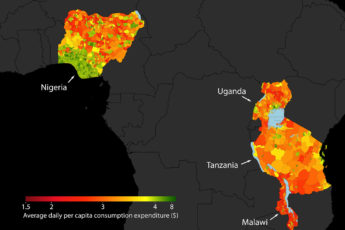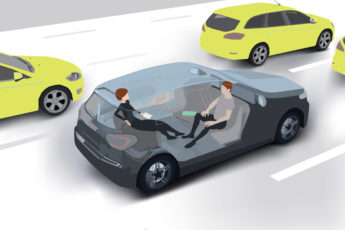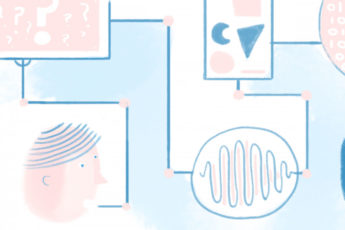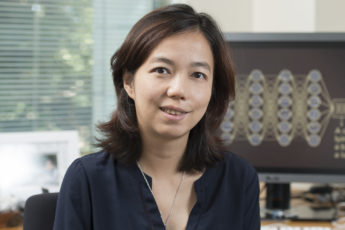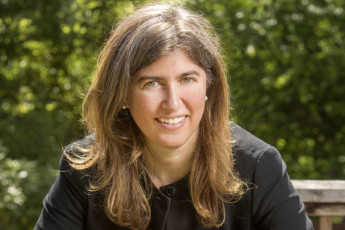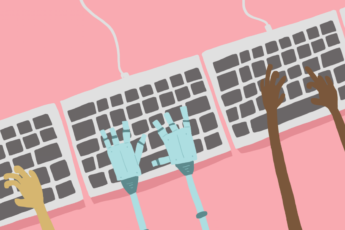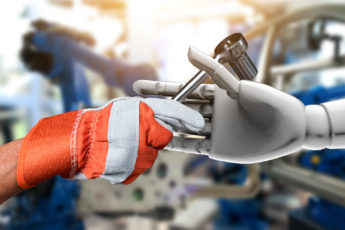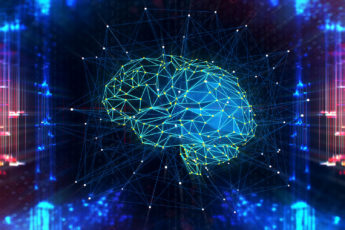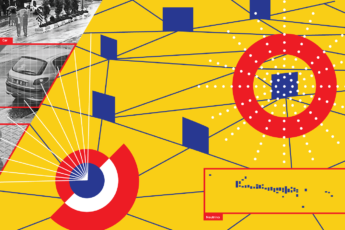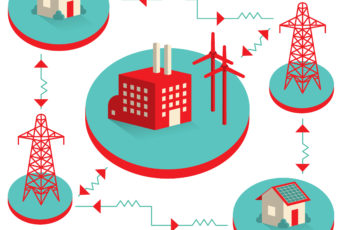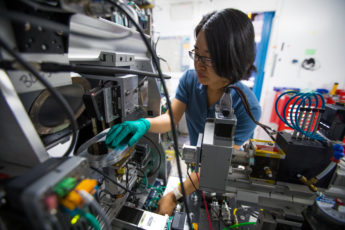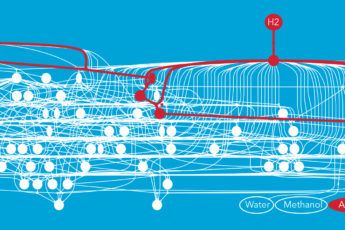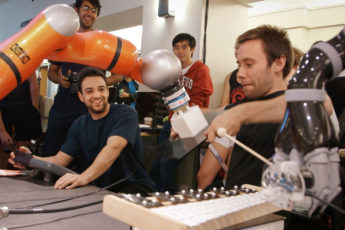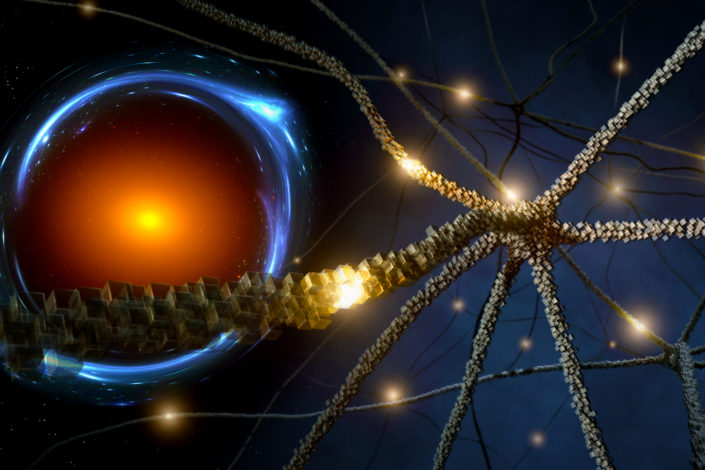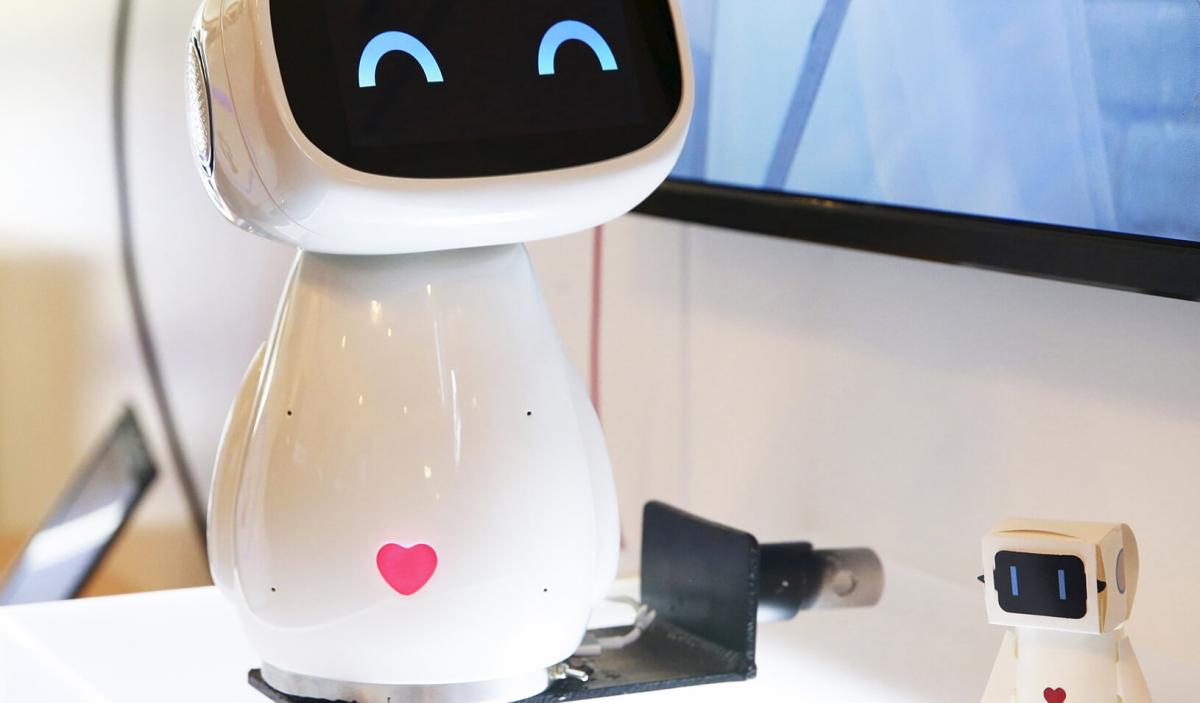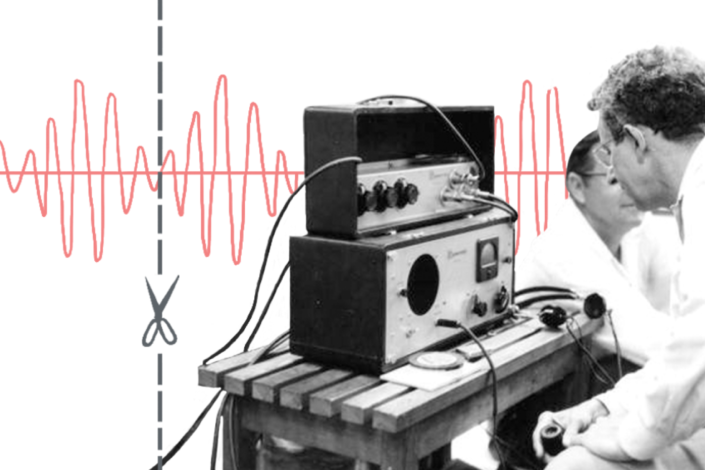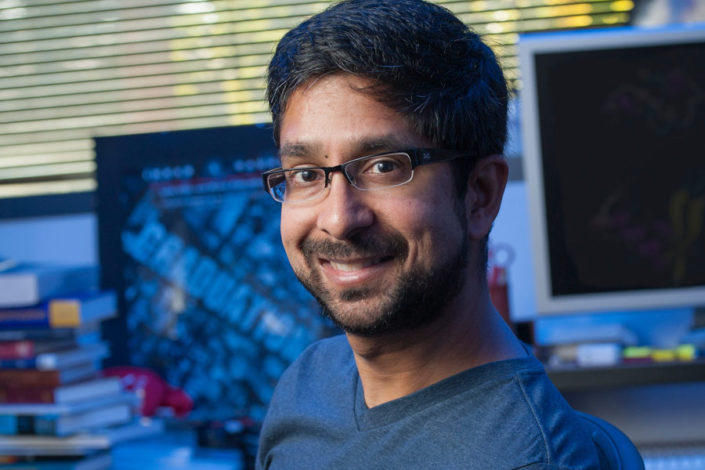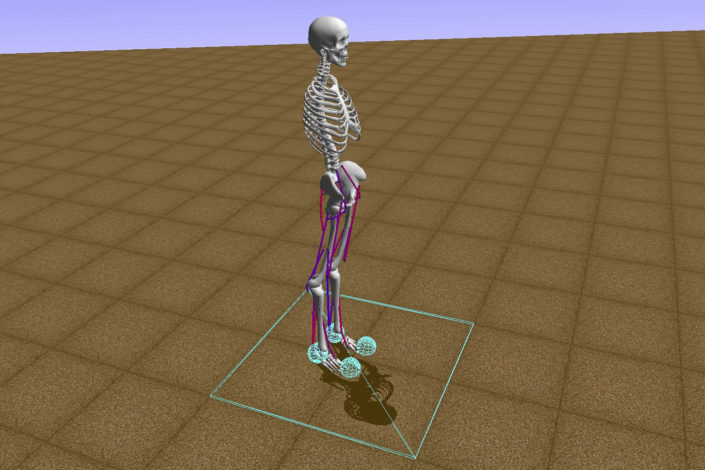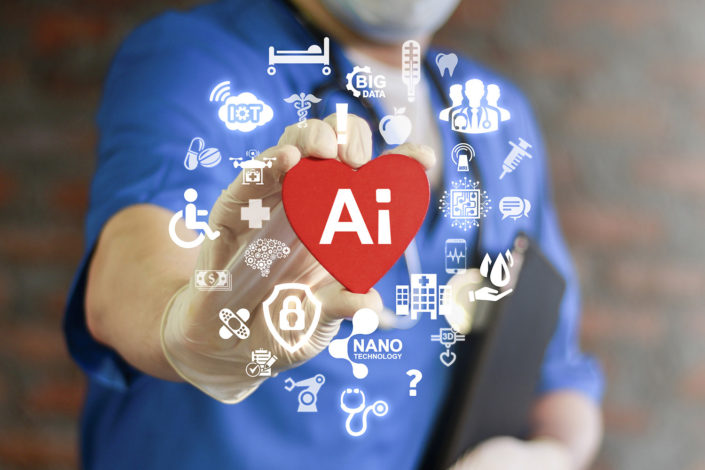By Nathan Collins
Once a computer scientist’s pipe dream, artificial intelligence is now part of our daily lives in the form of voice recognition systems, product recommendation platforms and navigation tools. All of these rely on computer algorithms that process information and solve problems in a way similar to – and sometimes superior to – the human mind.
Yet artificial intelligence is doing more than just recommending new restaurants and the best routes to them. It is also changing the way scientists across diverse disciplines are studying the world. Aided by the close proximity of medical researchers, computer scientists, psychologists and more, Stanford researchers are deploying artificial intelligence to map poverty in Africa, find safer alternatives to conventional rechargeable batteries and perhaps even understand our own minds.
AI Advancing Social Sciences and Humanities
|
Algorithms reveal changes in
|
At Stanford, experts explore artificial intelligence’s social benefitsExperts from Stanford and elsewhere talked about the future of artificial intelligence in |
Stanford scientists combine satellite
|
Robo-journalism is good news for stocksAutomation in the newsroom expands coverage of smaller firms and improves markets. |
|
Stanford professors discuss ethics involving driverless carsSelf-driving technology presents vast ethical challenges and questions. Several professors and interdisciplinary groups at Stanford who are tackling this issue offer their perspectives on the topic. |
Cops speak less respectfully to black community membersProfessors Jennifer Eberhardt and Dan Jurafsky, along with other Stanford researchers, detected racial disparities in police officers’ speech after analyzing more than 100 hours of body camera footage from Oakland Police. |
Tracking fishing from spaceSatellite data from thousands of high seas fishing vessels over four years illuminate global fishing’s scope and pattern and hold promise for improving ocean management across the planet. |
CASBS tackles interdisciplinary solutions to societal problemsInterdisciplinary research at Stanford’s Center for Advanced Study in the Behavioral Sciences addresses future of work, consequences of evolving technology and other pressing societal issues. |
|
Chris Manning: How computers are learning to understand languageA computer scientist discusses the evolution of computational linguistics and where it's headed next. He was recently named the Thomas M. Siebel Professor in Machine Learning. |
A neighborhood’s cars indicate its politicsStanford researchers led by Fei-Fei Li use computer algorithms to analyze millions of publicly available images on Google Street View. |
Audrey Shafer: Why Frankenstein still holds a mirror to modern scienceStanford’s Russ Altman and Audrey Shafer reflect on Mary Shelley’s Frankenstein and how it illuminates the moral and ethical challenges of modern science. |
Stanford historian examines age-old inquiry about what it means to be ‘living’In research covering four centuries of scientific debate, Stanford historian Jessica Riskin investigates different views of man and machine, and how this debate laid the groundwork for later theories of evolution and science. |
|
Which is more fair: a human or a machine?A team of researchers harness the variability of human decision making to compensate for two flaws in machine-learning models: factoring in the unknown and the unknowable. |
Michael Bernstein: Welcome to the future of crowdsourcingOn The Future of Everything radio show, a computer scientist explores the rise of automation, crowdsourcing communities and the ethical implications of the gig economy. |
Artificial intelligence in the workplaceArtificial intelligence offers both promise and peril as it revolutionizes the workplace, the economy and personal lives, says James Timbie of the Hoover Institution, who studies artificial intelligence and other technologies. |
Algorithm improves integration of refugeesA new machine learning algorithm developed by Stanford researchers could help governments and resettlement agencies find the best places for refugees to relocate, depending on their particular skills and backgrounds. |
AI Advancing Science and Technology
|
Deep learning comes full circleArtificial intelligence drew much inspiration from the human brain but went off in its own direction. Now, AI has come full circle and is helping neuroscientists better understand how our own brains work. |
Neural networks for neutrinosScientists are using cutting-edge machine-learning techniques to analyze physics data. |
No more burning batteries? Stanford scientists turn to AI to create safer lithium-ion batteriesResearchers have identified 21 solid materials that could replace flammable liquid electrolytes in lithium-ion batteries, improving the safety of electronic devices like cellphones and laptops. |
Stanford’s humanoid robotic diver recovers treasures from King Louis XIV’s wrecked flagshipThe robot, called OceanOne, is powered by artificial intelligence and haptic feedback systems, allowing human pilots an unprecedented ability to explore the depths of the oceans in high fidelity. |
|
SLAC-led project will use artificial intelligence to prevent or minimize electric grid failuresIt’s the first to employ AI to help the grid manage power fluctuations, resist damage and bounce back faster from storms, solar eclipses, cyberattacks and other disruptions |
Scientists use machine learning to speed discovery of metallic glassSLAC and its collaborators are transforming the way new materials are discovered. In a new report, they combine artificial intelligence and accelerated experiments to discover potential alternatives to steel in a fraction of the time. |
Machine learning dramatically streamlines search for more efficient chemical reactionsAn advance by SLAC and Stanford researchers greatly reduces the time needed to analyze complex chemical reactions, including catalysis. |
Stanford students get creative with robotsAfter learning new software and programming languages, Stanford students in the Artificial Intelligence Laboratory have an opportunity to choose a creative task and design a robot to perform the task for demonstration. |
Autonomous robotics class integrates theory and practiceStudents programmed robots to autonomously navigate an unknown cityscape and aid in a simulated rescue of animals in peril in a class that mimics the programming needed for autonomous cars or robots of the future. |
Artificial intelligence analyzes gravitational lenses 10 million times fasterSLAC and Stanford researchers demonstrate that brain-mimicking neural networks can revolutionize the way astrophysicists analyze their most complex data, including extreme distortions in spacetime that are crucial for our understanding of the universe. |
Andrew Ng: Why AI is the new electricityA computer scientist discusses artificial intelligence’s promise, hype and biggest obstacles. |
Maneesh Agrawala: Artificial intelligence comes to multimediaStanford professors Russ Altman and Maneesh Agrawala explore advances in media where AI handles the rough cut, and editing becomes like using word processors for images and sound.
|
|
Artificial intelligence index tracks emerging fieldThe initiative measures AI’s technological progress much as the GDP and S&P 500 take the pulse of the U.S. economy and stock market. |
AI Advancing Health
|
Stanford research could improve counseling on crisis help linesMany people now text rather than call for help, allowing computer scientists to study anonymous data files and learn which counseling tactics work best. |
Deep learning algorithm could aid drug developmentCombining computer science and chemistry, researchers show how an advanced form of machine learning that works off small amounts of data can be used to solve problems in drug discovery. |
Virtual competitors vie for a different kind of athletic titleBetter models of the bone, muscles and nerves that control our bodies could help doctors manage movement disorders like cerebral palsy. A new competition is crowdsourcing the search for those tools. |
Computers trounce pathologists in predicting lung cancer type, severityAutomating the analysis of slides of lung cancer tissue samples increases the accuracy of tumor classification and patient prognoses, according to a new study.
|
|
Artificial intelligence used to identify skin cancerIn hopes of creating better access to medical care, Stanford researchers have trained an algorithm to diagnose skin cancer. |
Algorithm diagnoses heart arrhythmias with cardiologist-level accuracyA new deep learning algorithm can diagnose 14 types of heart rhythm defects, called arrhythmias, better than cardiologists. This could speed diagnosis and improve treatment for people in rural locations. |
Stanford scholars discuss mental health and technologyConversational software programs might provide patients a less risky environment for discussing mental health, but they come with some risks to privacy or accuracy. Stanford scholars discuss the pros and cons of this trend. |
Researchers say use of artificial intelligence in medicine raises ethical questionsIn a perspective piece, Stanford researchers discuss the ethical implications of using machine-learning tools in making health care decisions for patients. |
|
Researchers improve patient safety with bedside computer visionWhat if clinician imperfection could be improved by a form of artificial intelligence that continuously detects, and prompts correction of, defects in bedside care? |
Artificial intelligence in medicine — predicting patient outcomes and beyondNigram Shah, an associate professor of medicine, discusses how artificial intelligence could help doctors predict outcomes after patients are hospitalized. |
